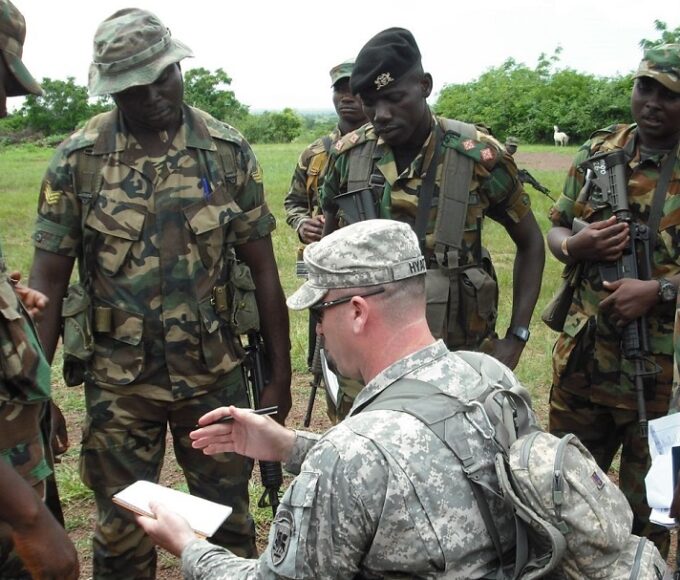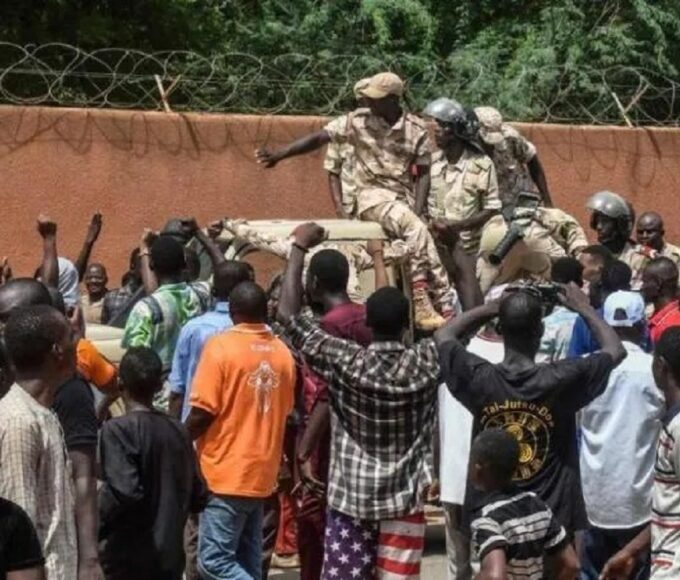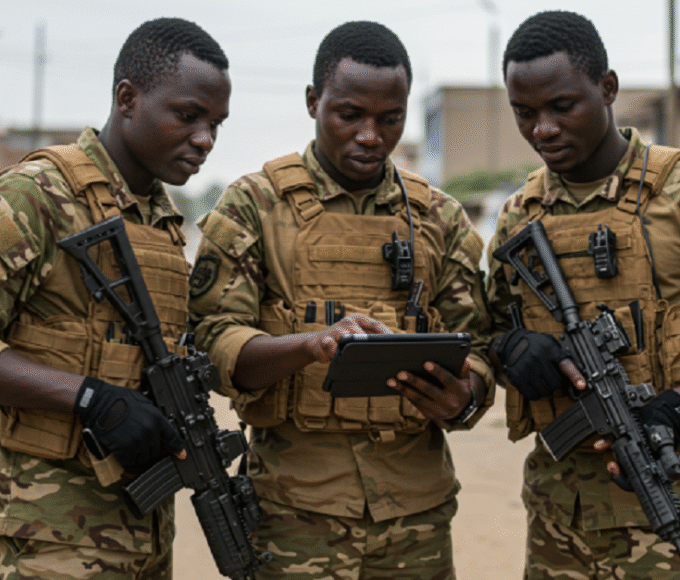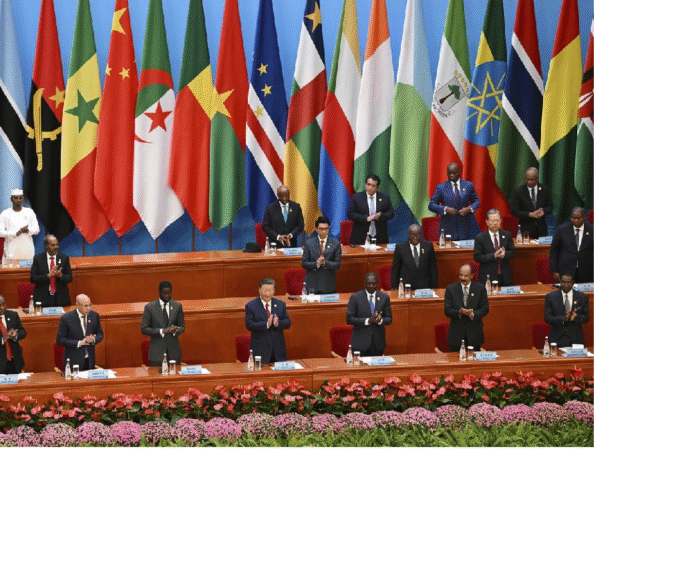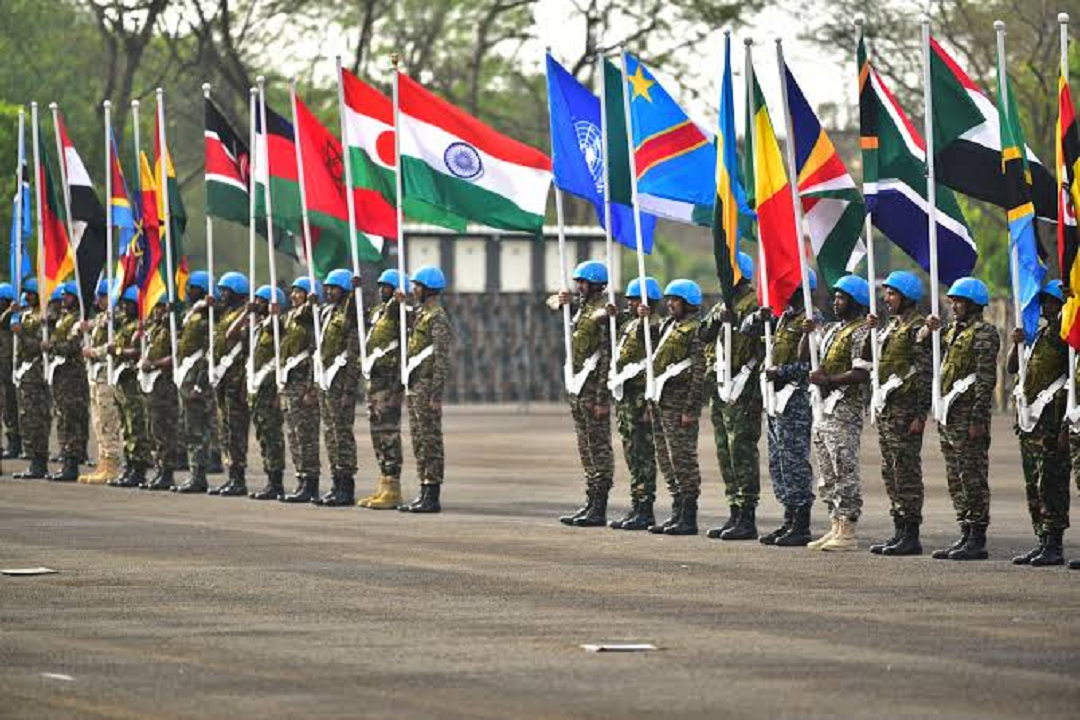
INDIA’S GROWING MILITARY PARTNERSHIPS WITH AFRICA
India’s engagement with Africa is undergoing a quiet but powerful transformation. What began as a relationship forged in shared anti-colonial struggles has matured into one of the most significant pillars of New Delhi’s foreign policy. In an era of intensifying great-power rivalry between the United States and China, Africa has become a critical arena where India is asserting its global presence, securing maritime routes in the Indian Ocean, and shaping a more balanced, multipolar world order.
Unlike purely transactional partnerships, India’s outreach to Africa rests on shared democratic values, historical solidarity, and mutual interests in tackling contemporary threats such as piracy, terrorism, and climate-driven instability. As India prepares to take over the chairmanship of the Indian Ocean Rim Association in November 2025, its expanding defence cooperation with African nations signals a decisive step toward a future where both sides co-author a new global security narrative.
Related Article: ECOWAS MILITARY INTERVENTION IN NIGER: A TURNING POINT?
The roots of this partnership run deep. In 1960, India dispatched its first peacekeeping contingent to the Democratic Republic of Congo, marking the start of a decades-long commitment to Africa’s peace and stability. Indian troops have since served in more than a dozen African nations, from Angola and Somalia to Sierra Leone, earning respect for their professionalism and sacrifice. Parallel to these missions, India helped strengthen Africa’s military capacity by supporting the creation of institutions such as the Harare Military Academy in Zimbabwe and upgrading defence training facilities in Ethiopia. These early efforts laid the groundwork for a broader strategic relationship built on self-reliance and South-South cooperation.
That legacy evolved into structured engagement with the launch of the India-Africa Defence Ministers’ Conclave in 2020, which set the stage for joint ventures in defence manufacturing, technology transfer, and training. Since then, the pace has only accelerated. The second India-Africa Defence Dialogue in 2022 brought together representatives from 50 nations to discuss cyber threats, maritime security, and counter-terrorism. The Africa-India Field Training Exercise, or AFINDEX, has become a recurring platform for humanitarian assistance and disaster relief drills involving soldiers from across the continent. These interactions, under the India-Africa Forum Summit framework, have translated into concrete outcomes such as renewed intelligence-sharing agreements, joint naval patrols, and a stronger African voice in multilateral platforms like the G20 and BRICS.
Maritime security has emerged as the cornerstone of this cooperation. Africa’s vast coastline and proximity to key global shipping lanes make the Indian Ocean Region a shared strategic concern. The Africa-India Key Maritime Engagement, or AIKEYME 2025, co-hosted by the Indian Navy and Tanzania’s People’s Defence Force in Dar es Salaam, brought together ships and personnel from nine nations, including Comoros, Kenya, and Seychelles, for anti-piracy and search-and-rescue operations.
The depth of engagement is perhaps most visible in India’s growing bilateral ties with key African partners. In September 2024, New Delhi and Pretoria signed agreements to expand naval cooperation, including submarine rescue operations and real-time information exchange on illicit maritime activities. Morocco, too, has become a focal point. In early 2025, Defence Minister Rajnath Singh inaugurated Tata Advanced Systems’ new facility in Casablanca — India’s first defence manufacturing plant on African soil. The plant produces the Wheeled Armoured Platform, or WhAP, and is part of a broader strategy to bring African nations into India’s “Make in India” ecosystem. Morocco also signed a memorandum of understanding covering cybersecurity and joint training programmes, marking a new phase in Indo-African defence industrial collaboration.
India’s role as an emerging arms exporter is also reshaping its reputation. Between 2017 and 2021, Mauritius and Mozambique accounted for a significant portion of India’s defence exports, purchasing offshore patrol vessels and aircraft components. A potential $1 billion deal with Nigeria, involving Tejas fighter jets, drones, and armoured vehicles, could position India as a credible alternative to traditional suppliers like Russia and China. These deals emphasize technology transfer and local production, underscoring India’s evolution from aid provider to strategic investor.
At the heart of this engagement is human capacity-building a hallmark of India’s foreign policy. Thousands of African officers have trained at Indian military academies, and Indian Mobile Training Teams routinely conduct specialized courses for African special forces. Under the Innovations for Defence Excellence, or iDEX, initiative, joint research projects on drones, cyber tools, and surveillance systems are already underway.
As climate change fuels resource conflicts and extremism spreads across borders, India and Africa’s growing defence partnership could redefine security cooperation in the Global South. With defence exports projected to reach $5 billion annually by 2025, India’s strategy is to co-create technologies and training frameworks tailored to African realities.
King Richard Igimoh, Group Editor ALO
King Richard Igimoh, Group Editor African Leadership Organisation is an award-winning journalist, editor, and publisher with over two decades of expertise in political, defence, and international affairs reporting. As Group Editor of the African Leadership Organisation—publishers of African Leadership Magazine, African Defence & Security Magazine, and Africa Projects Magazine—he delivers incisive coverage that amplifies Africa’s voice in global security, policy, and leadership discourse. He provides frontline editorial coverage of high-profile international events, including the ALM Persons of the Year, the African Summit, and the African Business and Leadership Awards (ABLA) in London, as well as the International Forum for African and Caribbean Leadership (IFAL) in New York City during the United Nations General Assembly.
Recent Posts
Categories
- Air & Aerospace17
- Border Security15
- Civil Security6
- Civil Wars4
- Crisis5
- Cyber Security8
- Defense24
- Diplomacy19
- Entrepreneurship1
- Events5
- Global Security Watch6
- Industry8
- Land & Army9
- Leadership & Training5
- Military Aviation7
- Military History27
- Military Speeches1
- More1
- Naval & Maritime9
- Policies1
- Resources2
- Security12
- Special Forces2
- Systems And Technology9
- Tech6
- Uncategorized6
- UNSC1
- Veterans7
- Women in Defence9
Related Articles
EVOLVING HORIZONS: TRAINING THE AFRICAN SOLDIER IN A CHANGING LANDSCAPE
The training of African soldiers has undergone a profound transformation in recent...
ByKing Richard Igimoh, Group Editor ALOOctober 2, 2025COLD WAR AFRICA: PROXY WARS AND THEIR IMPACT
The Cold War in Africa, spanning from the late 1940s to the...
ByKing Richard Igimoh, Group Editor ALOSeptember 26, 2025AI AND AFRICA’S MILITARY INTELLIGENCE: PROMISE AND PERIL IN A TRANSFORMING SECURITY LANDSCAPE
Africa’s military landscape is entering a new chapter, shaped by the rapid...
ByKing Richard Igimoh, Group Editor ALOSeptember 22, 2025CHINA’S EXPANDING MILITARY FOOTPRINT IN AFRICA: A NEW ERA OF GLOBAL COMPETITION
China’s military presence in Africa is no longer a side note to...
ByKing Richard Igimoh, Group Editor ALOSeptember 22, 2025










